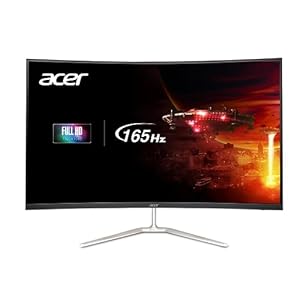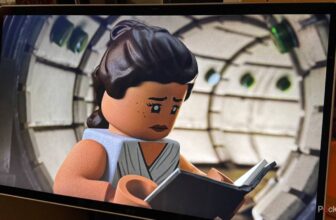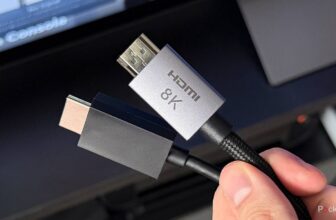Kindles are arguably the most popular single-use devices on the market. You’ll see them in the hands of train commuters, beach combers, and night owls reading way too late into the early hours of the morning. I definitely fall in the latter category, and I have the convenience of one-tap purchases now to thank for the lack of cliffhanger culture in my reading life.
E-readers, in general, are all about convenient reading. They aren’t typically utilized in situations where they could easily earn a beating — unless you’re a particularly clumsy reader walking beside the end of Splash Mountain, that is. I find that the casual Kindle user often falls prey to frills and features they don’t need, and the price premium that comes with them.
Here’s why most people don’t actually need fancier Kindle models like the Colorsoft or the Paperwhite and should stick to the base model.
- Storage
- 16GB
- Screen Size
- 6-inch E Ink (300ppi)
- Connections
- USB-C
- Battery
- Up to 6 weeks
Amazon’s base-level Kindle ships with 16GB of storage, a 6-inch E Ink display, and a ruggedized exterior shell that can withstand the elements.
Signs you should buy the base
Because casual readers don’t need to overspend
Reading influencers and Kindle marketing both push for the upgrades that come with the more expensive models. But if you take a step back and really look at what the premium offers entail, you’ll find that the improvements are slight, if anything. If you don’t have any qualms about reading a physical book, it’s not like the base Kindle is going to do anything besides open several convenient doors for you.
You aren’t missing out if you choose the base Kindle. In fact, here are some common-sense signs that you should opt for the basic model:
- You mainly read indoors
- You’re reading regular text books, not manga or graphic novels
- You aren’t taking your Kindle into the pool, ocean, shower, or bathtub — unless you’re really careful in the self-care bubble bath
- You don’t read at the maximum font size (or mind one fewer inch of screen space)
- You have a teaspoon’s worth of patience when it comes to page turns (which are basically the same as a normal book)
- Your eyes don’t desperately crave a warm display
- You’re okay with charging the device every month and a half or so
These sound somewhat silly, don’t they? That’s because Kindles are supposed to be a traditional book replacement, not a do-it-all gadget. In fact, sometimes I find that my Paperwhite is too big to hold in one hand, so I switch it out for my regular base Kindle. When I do, I don’t notice a huge difference — I’m more focused on my book than the device, which is exactly what the e-reader is meant to help you achieve.
As both a base Kindle and Paperwhite owner, I feel qualified to let you know that you won’t miss out on much at all if you opt for the base model (and save $50). The main difference between the Kindle Paperwhite and the base is that the Paperwhite has a slightly larger screen, is water-resistant, and has an adjustable warm light. Sure, there’s a 25% faster refresh rate on the Paperwhite, but unless you put the two models side by side and test it yourself, you really won’t notice a difference — especially if the base Kindle is your first e-reader.
That’s because Kindles are supposed to be a traditional book replacement, not a do-it-all gadget. In fact, sometimes I find that my Paperwhite is too big to hold in one hand, so I switch it out for my regular base Kindle. When I do, I don’t notice a huge difference — I’m more focused on my book than the device, which is exactly what the e-reader is meant to help you achieve.
Do you lose anything by choosing the base Kindle?
A bit of reassurance
There might be a part of your brain leaning towards one of the nicer models because it’s easier to bite the bullet on nicer features up front than regretting losing out on them in the first place. So, here is what remains the same across all Kindle devices — no matter price, display, or IP rating:
- Same access to your Amazon ecosystem (the Kindle Store, Kindle Unlimited, Prime Reading, your Library, files from Send to Kindle, etc.)
- Same storage space (16GB, which is the same as the standard Kindle Paperwhite)
- Same battery longevity (as long as you consider a single charge lasting six weeks to be adequate)
- Same font style and size customization
- The same popular Kindle software features like X-ray, Landscape mode, and more
- The same Bluetooth compatibility for audiobooks
In short, the differences really aren’t noticeable to most readers — even if you’ve owned a Paperwhite or other upgraded model. There are only a few specific times I might recommend the Paperwhite, Colorsoft, or Scribe over the base Kindle. If you prefer a bigger display or frequently read by bodies of water, the extra $50 is worth it for your eyesight or peace of mind when it comes to water-resistance. If more than half the books you read are colorful graphic novels, the Colorsoft might be a better choice for the sake of storage and overall reading experience with those kinds of texts. And if you’re a serial annotator (who writes their grocery lists in the margins beside a philosophical thought), the Scribe is your e-reader — the other models aren’t built like digital stationary like it is.
But if you’re an avid or casual reader looking for an easier way to lug The Winds of Winter to work with you, the base Kindle is more than enough to satisfy your literary habits. Spend your $110 on the base and save the $50 you’d spend on the Kindle Paperwhite, the $90 you’d spend on the Kindle Paperwhite Signature Edition, the $150 you’d spend on the Colorsoft, and the $390 you’d spend on the Scribe — think about how many e-books you can purchase instead.
Trending Products

Wireless Keyboard and Mouse Combo, ...

ASUS Vivobook Go 15.6” FHD Slim L...

HP 14″ HD Laptop | Back to Sc...

ASUS TUF Gaming GT502 ATX Full Towe...

Lenovo New 15.6″ Laptop, Inte...

Acer Nitro 31.5″ FHD 1920 x 1...

Logitech Signature MK650 Combo for ...

Acer Chromebook 314 CB314-4H-C2UW L...

HP 14″ Ultral Light Laptop fo...








